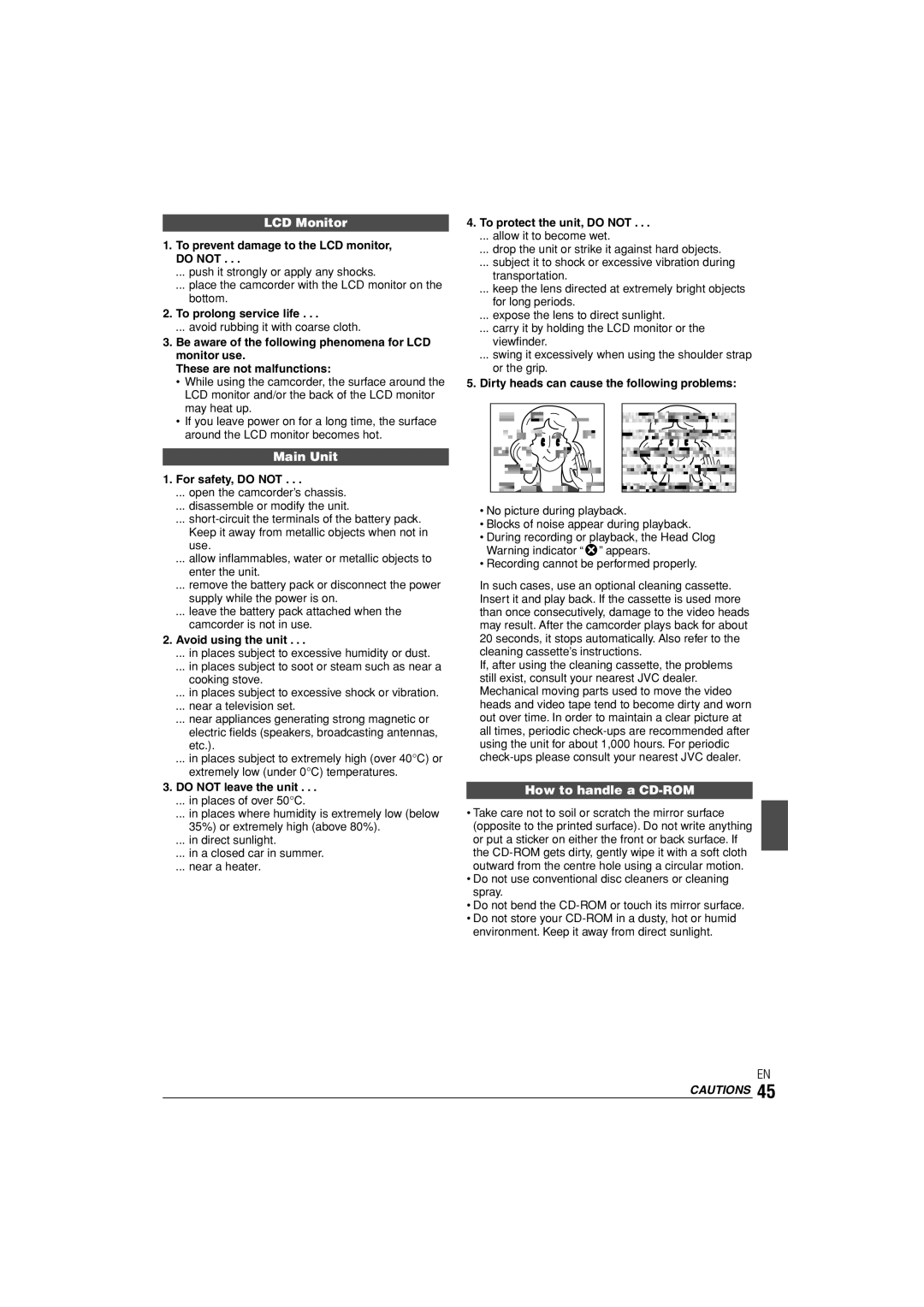
LCD Monitor
1.To prevent damage to the LCD monitor, DO NOT . . .
... push it strongly or apply any shocks.
... place the camcorder with the LCD monitor on the bottom.
2.To prolong service life . . .
... avoid rubbing it with coarse cloth.
3.Be aware of the following phenomena for LCD monitor use.
These are not malfunctions:
•While using the camcorder, the surface around the LCD monitor and/or the back of the LCD monitor may heat up.
•If you leave power on for a long time, the surface around the LCD monitor becomes hot.
Main Unit
1.For safety, DO NOT . . .
... open the camcorder’s chassis.
... disassemble or modify the unit.
...
... allow inflammables, water or metallic objects to enter the unit.
... remove the battery pack or disconnect the power supply while the power is on.
... leave the battery pack attached when the camcorder is not in use.
2.Avoid using the unit . . .
... in places subject to excessive humidity or dust.
... in places subject to soot or steam such as near a cooking stove.
... in places subject to excessive shock or vibration.
... near a television set.
... near appliances generating strong magnetic or electric fields (speakers, broadcasting antennas, etc.).
... in places subject to extremely high (over 40°C) or extremely low (under 0°C) temperatures.
3.DO NOT leave the unit . . .
... in places of over 50°C.
... in places where humidity is extremely low (below 35%) or extremely high (above 80%).
... in direct sunlight.
... in a closed car in summer.
... near a heater.
4.To protect the unit, DO NOT . . .
... allow it to become wet.
... drop the unit or strike it against hard objects.
... subject it to shock or excessive vibration during transportation.
... keep the lens directed at extremely bright objects for long periods.
... expose the lens to direct sunlight.
... carry it by holding the LCD monitor or the viewfinder.
... swing it excessively when using the shoulder strap or the grip.
5.Dirty heads can cause the following problems:
•No picture during playback.
•Blocks of noise appear during playback.
•During recording or playback, the Head Clog Warning indicator “![]() ” appears.
” appears.
•Recording cannot be performed properly.
In such cases, use an optional cleaning cassette. Insert it and play back. If the cassette is used more than once consecutively, damage to the video heads may result. After the camcorder plays back for about 20 seconds, it stops automatically. Also refer to the cleaning cassette’s instructions.
If, after using the cleaning cassette, the problems still exist, consult your nearest JVC dealer. Mechanical moving parts used to move the video heads and video tape tend to become dirty and worn out over time. In order to maintain a clear picture at all times, periodic
How to handle a CD-ROM
•Take care not to soil or scratch the mirror surface (opposite to the printed surface). Do not write anything or put a sticker on either the front or back surface. If the
•Do not use conventional disc cleaners or cleaning spray.
•Do not bend the
•Do not store your
EN
CAUTIONS 45
